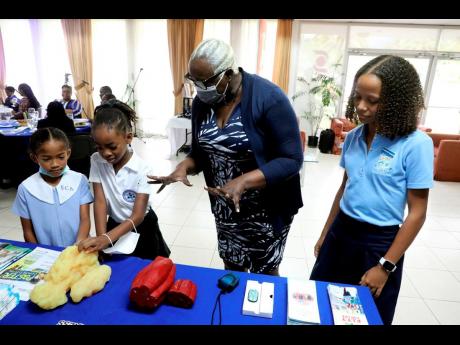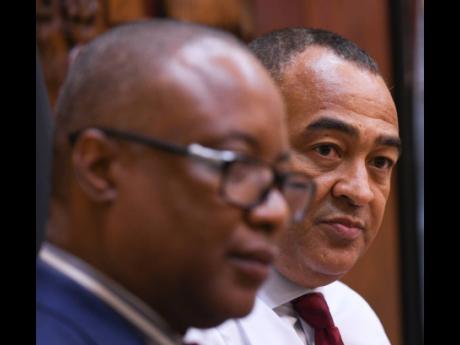Gov’t expands programme for diabetes testing
More Jamaicans will have access to the low-cost testing procedure for diabetes as the Government rolls out a $50-million programme to accelerate point-of-care checks for the killer disease this month.
This allocation for improved access to testing for diabetes comes against the background that four out of every 10 Jamaicans with the disease are unaware that they have it. That is the data from the 2016-2017 Jamaica Health and Lifestyle Survey.
The survey also reports that one in every eight Jamaican has diabetes, while one in every two is overweight or obese, a modifiable risk factor for developing a non-communicable disease (NCD) like diabetes.
The National Health Fund, NHF, is to receive the subsidy to cover the provision of testing devices and kits, information communication technology equipment and software used to slow down and stave off the disease.
The announcement of the expansion of the diabetes testing initiative was made by the Permanent Secretary of the Ministry of Health and Wellness, Dunstan Bryan. He was speaking at the official launch of the Diabetes Awareness Month’s Communications Activation Plan, being observed in November.
The event was hosted by the Non-Communicable Disease and Injury Prevention Unit at the ministry under the theme: ‘Reaching for Lifestyle Changes Today’, at the Scotiabank Corporate Learning Centre in St Andrew.
“Some 50,000 HbA1c tests are being provided to the Regional Health Authorities for testing. Private providers engaged in the Public-Private Partnership for NCDs programme started testing in 2021 for public patients enrolled in the programme and all 128 health centres will start testing this month,” Bryan said.
The goal is to improve diabetes management at the primary care level reaching residents within communities across Jamaica. This initiative will augment other NCDs prevention strategies embarked on by the Government such as the establishment of a multi-sectoral National Committee on NCDs in March 2021 to enhance the response to diabetes and other NCDs.
In 2015, the Statistical Institute of Jamaica reported that an estimated 70 per cent of deaths in the population five years old and above were due to four main NCDs, one of which was diabetes. Other research reveals that Jamaica is projected to lose about $77 billion because of cardiovascular disease and diabetes during the next 10-15 years.
“At the same time, children and youth continue to consume too much sugar. We have heard reports that some 70 per cent of children and youth consume one or more sweetened beverages per day, thereby increasing their risk of obesity and type 2 diabetes, as well as hypertension, and even tooth decay. We must work together to solve this problem,” Bryan said.
In observance of Diabetes Awareness Month, the health ministry will be leading a series of activities under the theme ‘Education to Protect Tomorrow’. The campaign aims to raise awareness around healthy lifestyle choices, screening and early detection of diabetes in the general population.
One key strategy is to incorporate children and youth as the messengers and target audience to strengthen the appeal for lifestyle changes in their families and communities, and to promote the adoption of healthy behaviours early in life toward the prevention and control of diabetes.
Among the activities for the month are a mass media campaign, a diabetes poster competition, educational talks within schools, virtual interactive sessions through workplaces, and community groups, and comic strip-type messaging for the children using the Gleaner’s Children’s Own.


